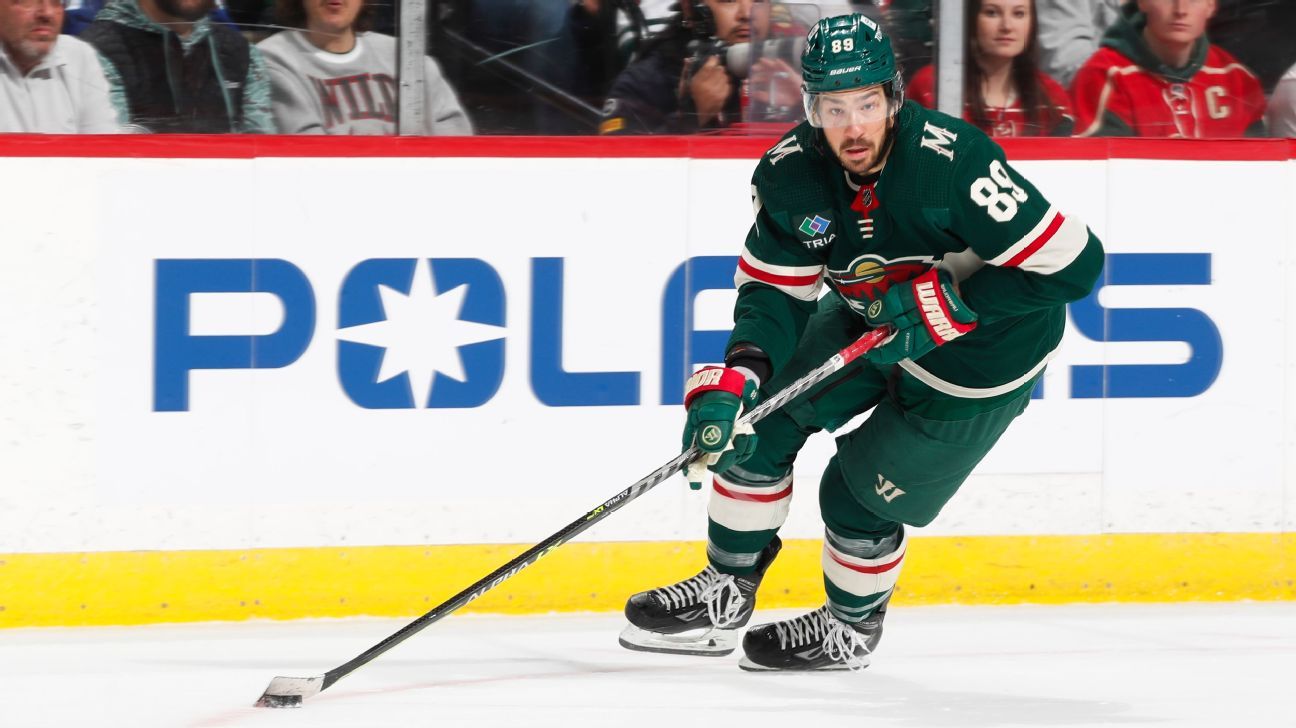SAITAMA, Japan — Around 6 p.m. Wednesday evening Patrick Reed was riding in a cart around a golf course he’d never seen before, trying to take notes before it got dark so he could start play for an Olympic medal the following morning.
These entire Tokyo Games are unique and uncomfortable, but Reed has a special case. He didn’t learn he was to be here until last Saturday night when Bryson DeChambeau‘s positive COVID-19 test knocked him out of the field.
Reed didn’t board a commercial flight for Tokyo until Tuesday morning and didn’t arrive until Wednesday afternoon local time. Forget a practice round, he wasn’t able to even hit a shot on the practice range.
But there Reed was Thursday afternoon, polishing off a 3-under 68 in his first walk around Kasumigaseki Country Club. He tied Xander Schauffele for low American, five shots back of first-round leader Sepp Straka of Austria and in early contention for a medal.
The strange situation forced Reed to rely on something he isn’t used to: teamwork.
Reed is known for playing with tunnel vision and keeping to himself whether it’s on the course, range or clubhouse. He’s said he enjoys getting together with peers off the course, but he’s a known loner.
During his round Thursday, as playing partners Tommy Fleetwood and Shane Lowry chatted amicably with each other between shots about the Olympic Village and their experience in Japan, Reed was off in his own space.
But earlier in the morning, he came to his Team USA teammates and asked for knowledge about the course, which they’d been practicing on for the past week. This format is odd — it’s a standard, individual stroke-play event with no team aspect. But countrymen usually practice together, stay together and dine together like it’s a Ryder Cup.
So the fellow Americans opened up their notebooks for their teammate.
“It’s something you normally don’t do,” Team USA’s Colin Morikawa said about sharing pre-event strategies. “Patrick is a competitor, but we’re on the same team. He asked a couple of very simple questions.”
Reed mostly wanted to know about how the greens accepted approach shots. The course is in pristine condition, having been shut down to members for two months to make it perfect for the 60 players in the field. The course has many deep fairway bunkers and numerous multi-tiered greens.
Not having experience cost Reed a few times. On the 15th hole a sand wedge approach spun more than he expected and his ball ended up 60 feet from the pin. On the short 17th he had just a lob wedge in and judged that the green sloped from back to front when instead the the back of the green actually fell away from the player. When his ball zipped in near the pin it didn’t grab into the hill. Instead it went deep, leading to a bogey.
“There’s only so much other players can help you out with,” Reed said. “[Justin Thomas] hits it way past me. Xander spins his irons more than I do. Colin hits cuts and I hit draws.”
Reed slept for less than an hour Monday night as he worked to get paperwork, testing and packing done for the trip. He flew from his home in Houston to San Francisco before going overseas. He got a full night’s sleep, but when a rain delay hit Thursday afternoon he found himself starting to feel it in the air conditioned clubhouse as the jet lag snuck in.
So he went to the range even though rain was still falling to stay awake. When play resumed, he hammered a drive off the par-5 14th tee and made a birdie. His finish was remarkable considering everything, better than he thought it would be.
“Adrenaline got me going early on, which allowed me to kind of keep going,” Reed said “Really the body hung in there a lot better than I could’ve expected.”











